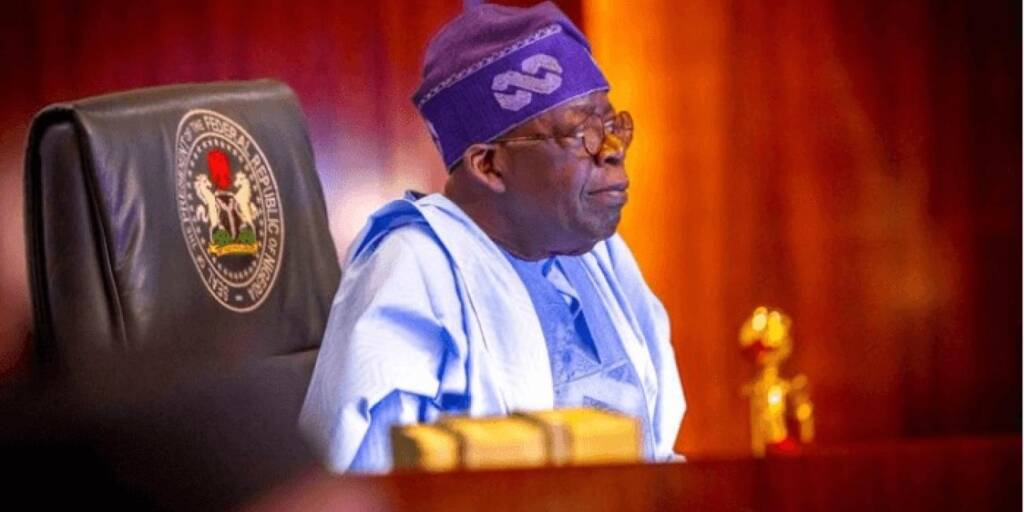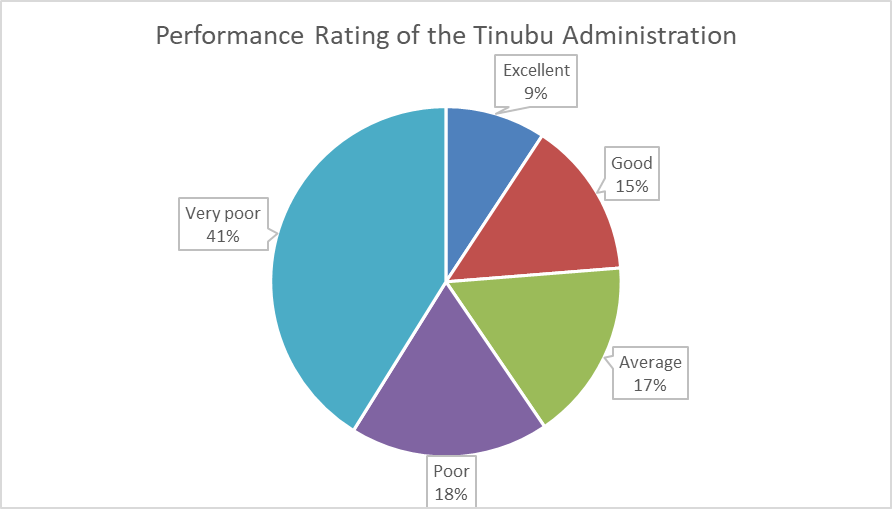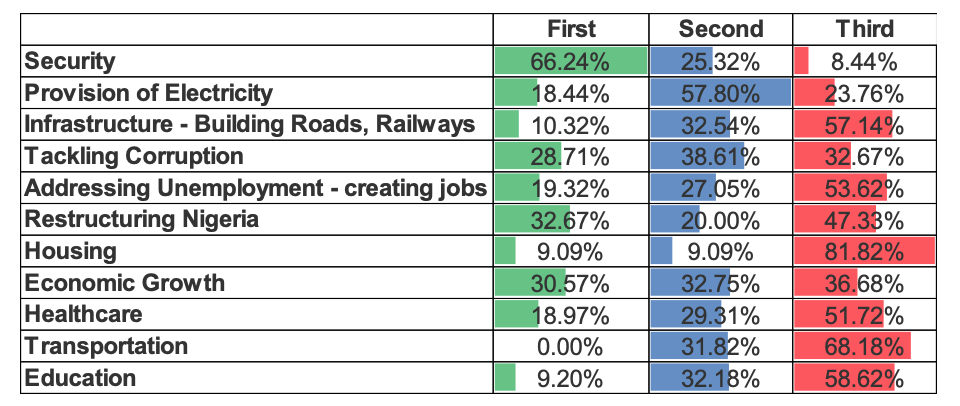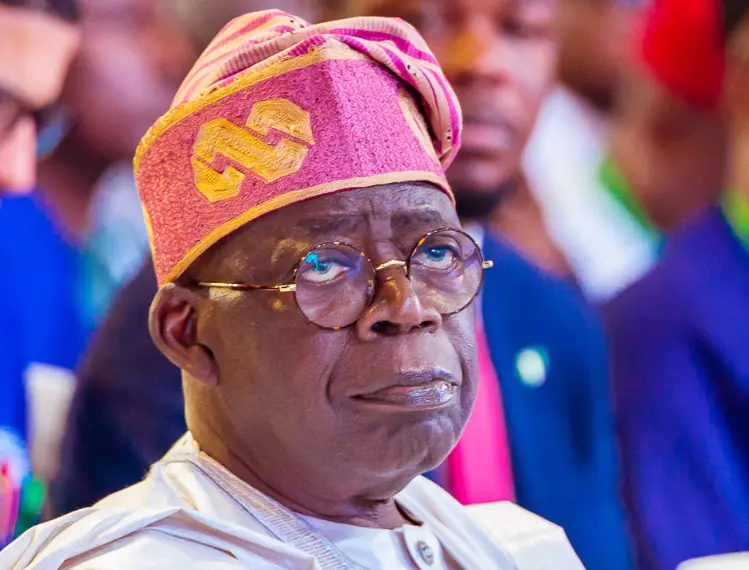
This was the third poll in GAIN’s (Governance Advancement Initiative for Nigeria) monthly presidential satisfaction and governance survey. It was administered from August 30th to September 7th. The monthly GAIN surveys comprehensively track the sentiments of the Nigerian people regarding the initiatives and policies of the Tinubu administration and are intended to provide the unadulterated views of the Nigerian public to their elected officials.
Demographic Information
The survey was targeted at Nigerians of voting age. Over 610 responses were received, providing a margin of error of ±4% at a 95% confidence level. 67.2% of respondents indicated that they voted in the 2023 presidential elections. 47.1% indicated that they had no political party affiliations. Respondents were drawn from across all six geopolitical zones, both in terms of their places of origin and their locations of residence.
41% Satisfaction rating for President Tinubu

Respondents were provided with a 5-scale question about their rating of President Tinubu’s performance (Figure 1). They were provided with the option of selecting from responses ranging from “Excellent”, “Good”, “Average” to “Poor” and “Very Poor”. Only one of these options could be selected. We have defined “Satisfaction” as being the sum of responses with a clearly positive rating of the President’s performance, drawn from the following options – “Excellent”, “Good” and “Average”.
41% of respondents rated the performance of the president as satisfactory (up from 35% in the last survey), with 9% of them rating his performance as “Excellent” (up from 8% the previous month), 15% rating it as “Good” (up from 11% the previous month) and a further 17% rating it as “Average” (slightly up from 16% the previous month).
Mixed Views Continue on the Administration’s New Policies
Respondents were asked to rate five (5) of the most topical policy initiatives of the Tinubu administration and were provided with a 4-scale range of response options (see Table 1). Respondents who selected the “Highly support” and “Support” scales were added up and interpreted as being supportive of the policy in question.
53.2% support Fuel subsidy removal: This was up from 50% of respondents in the last survey. 3.75% of respondents indicated that they did not know enough about the policy initiative, a slight tick downward from 4.5% the previous month.
70% support reforms in the electricity sector. A clear majority of Nigerians (70.4%) continued to indicate support for the administration’s electricity sector reforms, well in the range of the 74% who expressed support in the prior month. 16% indicated that they did not support this policy. 13.6% of respondents indicated that they did not know enough about this policy
46% of respondents oppose the new student loan policy: The new student loan policy continues to be the least supported policy initiative of the Tinubu government, with 45% of respondents indicating support. This was an uptick from the 37% of respondents indicating support in the previous month. 46.45% expressed a clear lack of support for the policy, down from 52% in the previous month. Only 8.3% of respondents indicated that they didn’t know enough about the policy, slightly up from 7.8% in the previous month.
69% support side – by – side circulation of old and new currencies: This monetary policy initiative instituted by the Tinubu administration continues to be popular with 69% of respondents expressing support for the policy.
58% support eliminating dual exchange rate: A majority continued to support the removal of the dual exchange rate policy, with the level of support rising from 52% in last month’s survey. This brings support for this policy back to levels seen in the first month of its implementation when backing was at the 60% level.
Priorities – Nigerians select Security, Electricity and Housing as their top 3 priorities

Respondents were presented with a list of ten (10) national priorities drawn from the APC manifesto as well as policy pronouncements that have been made by the Tinubu Administration (Table 2) and were asked to select their top three priorities from the list.
The first priority area selected by the majority of respondents was security at 66.2% (vs 73.33% the previous month), followed by provision of electricity in second place at 58% (vs 52.9% the previous month), while Housing was ranked third at 82%.
Respondents were also allowed to provide their own list of priorities as well as any additional commentary they had on the listed priority areas. The word cloud (see Figure 2) captures the sentiments expressed by respondents, with the size of words in the cloud, reflecting the number of times those issues were raised. The need to curb corruption and the rising school fees costs in the education sector were major issues raised by the respondents.
SaharaReporters




